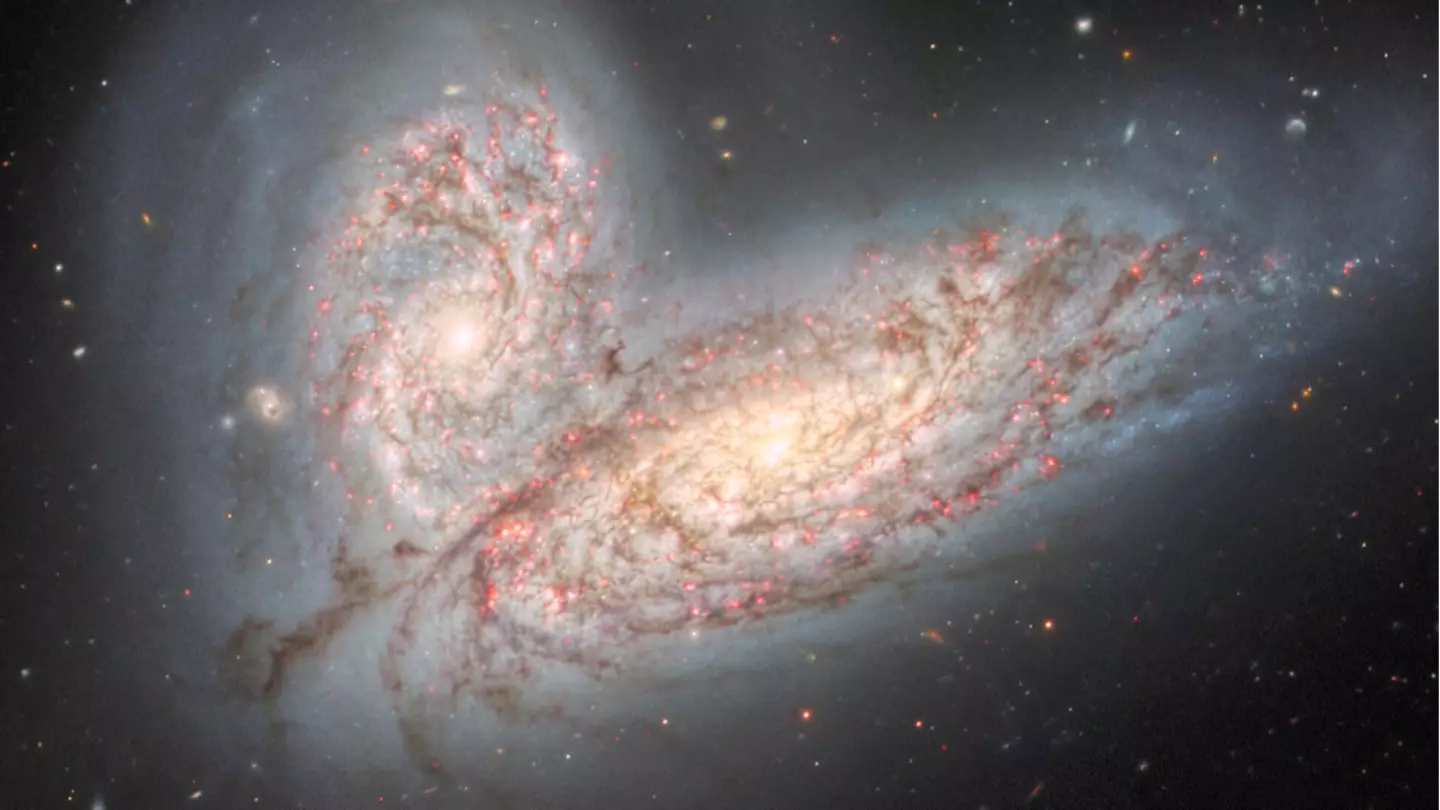
Here’s a piece of good news for you - our galaxy is set on a collision course with another galaxy, meaning that we’ll eventually smash together to become one huge galaxy.
Check out this video that NASA shared illustrating exactly that:
Before you go around maxing out all of your credit cards and looting loads of stuff, it’s worth remembering that this isn’t going to happen for a long old time yet.
Advert
In fact, we’ve got billions of years to go before this happens – that’s loads of time for us to wreck the planet our own way.
Still, if we are still going in 4.5 billion years, it’s going to be a pretty impressive event.
Our galaxy – the Milky Way – is set on a collision course with Andromeda, our nearest neighbour in intergalactic space.
The boffins up at NASA have actually known about this for ages, having reported it back in 2012.
However, it has gone viral again, so we thought we’d just remind you of it – some Monday motivation, if you will.
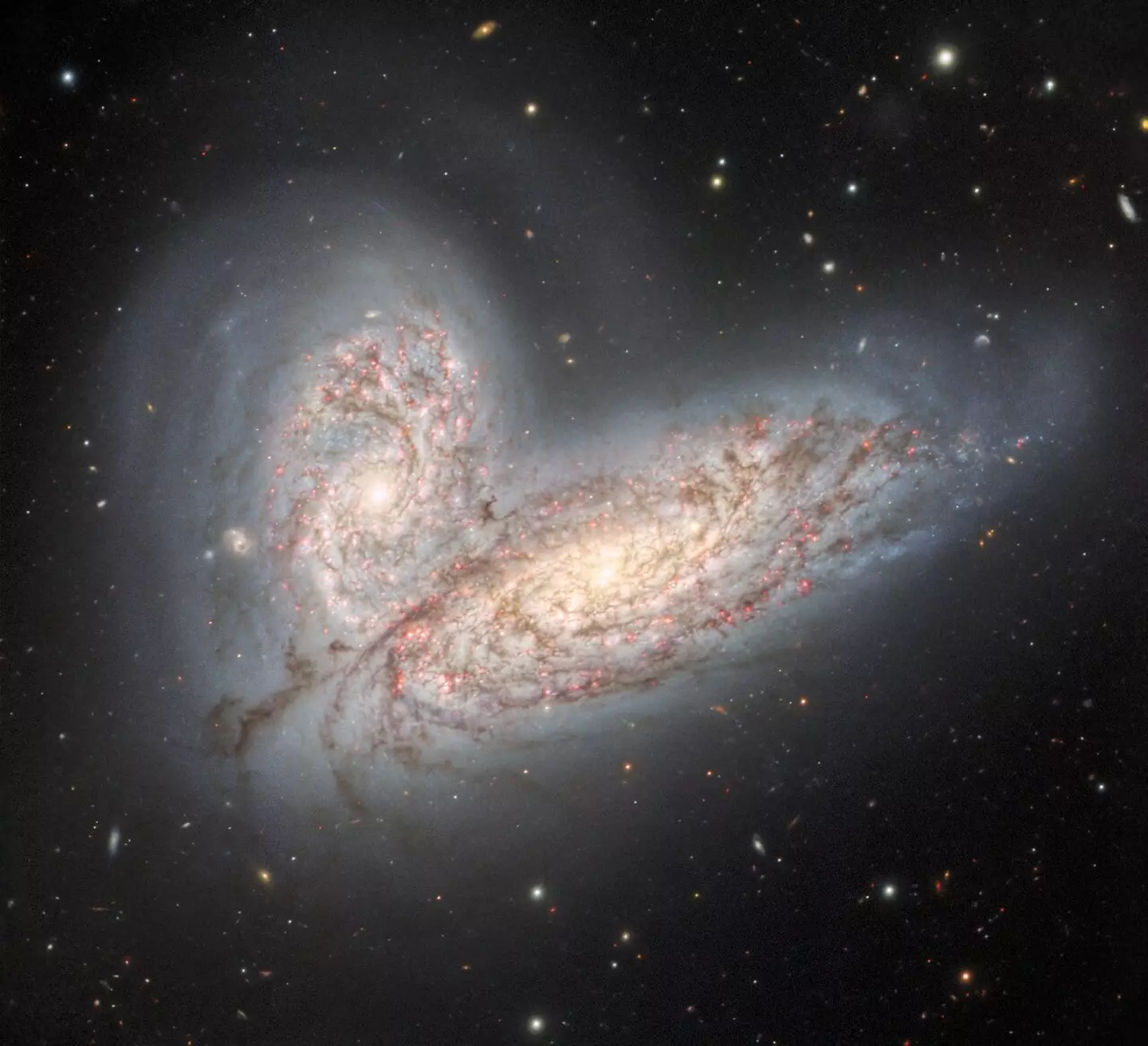
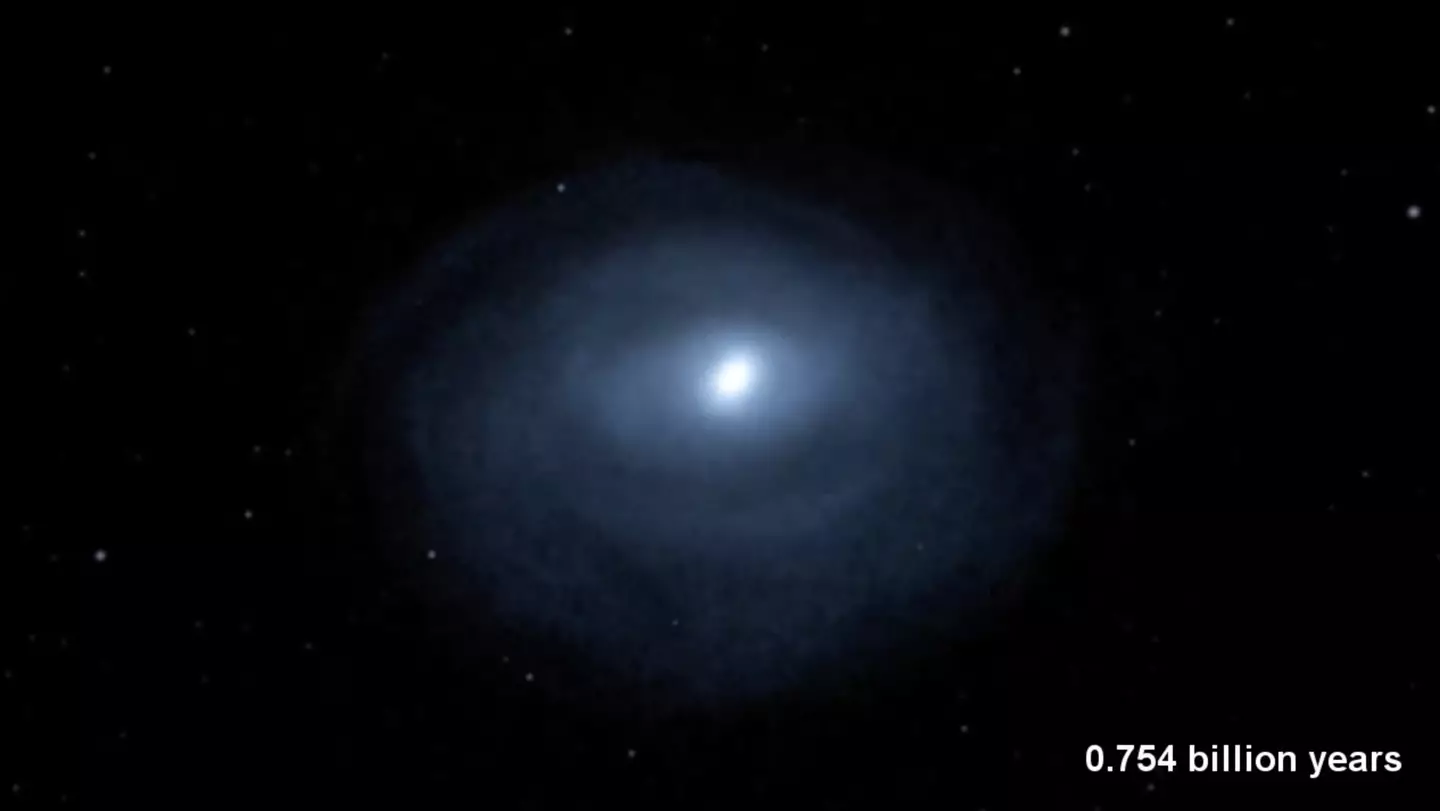
Back at the time of their findings, Roeland van der Marel from the Space Telescope Science Institute in Baltimore said: “Our findings are statistically consistent with a head-on collision between the Andromeda galaxy and our Milky Way galaxy.”
This revelation came after the Hubble Space Telescope tracked the movement of Andromeda, noticing that it is around 2.5 million lightyears away, but heading inexorably towards us because of the gravitational pull between the two galaxies, as well as the dark matter enveloping them both.
"After nearly a century of speculation about the future destiny of Andromeda and our Milky Way, we at last have a clear picture of how events will unfold over the coming billions of years," Sangmo Tony Sohn from the same institute added.
It’s gonna take a while though, so we’ve billions of years to wait it out.
After the four billion or so years waiting for the first meeting of the two, it’ll be two billion years more before the galaxies completely merge and become one big elliptical galaxy.
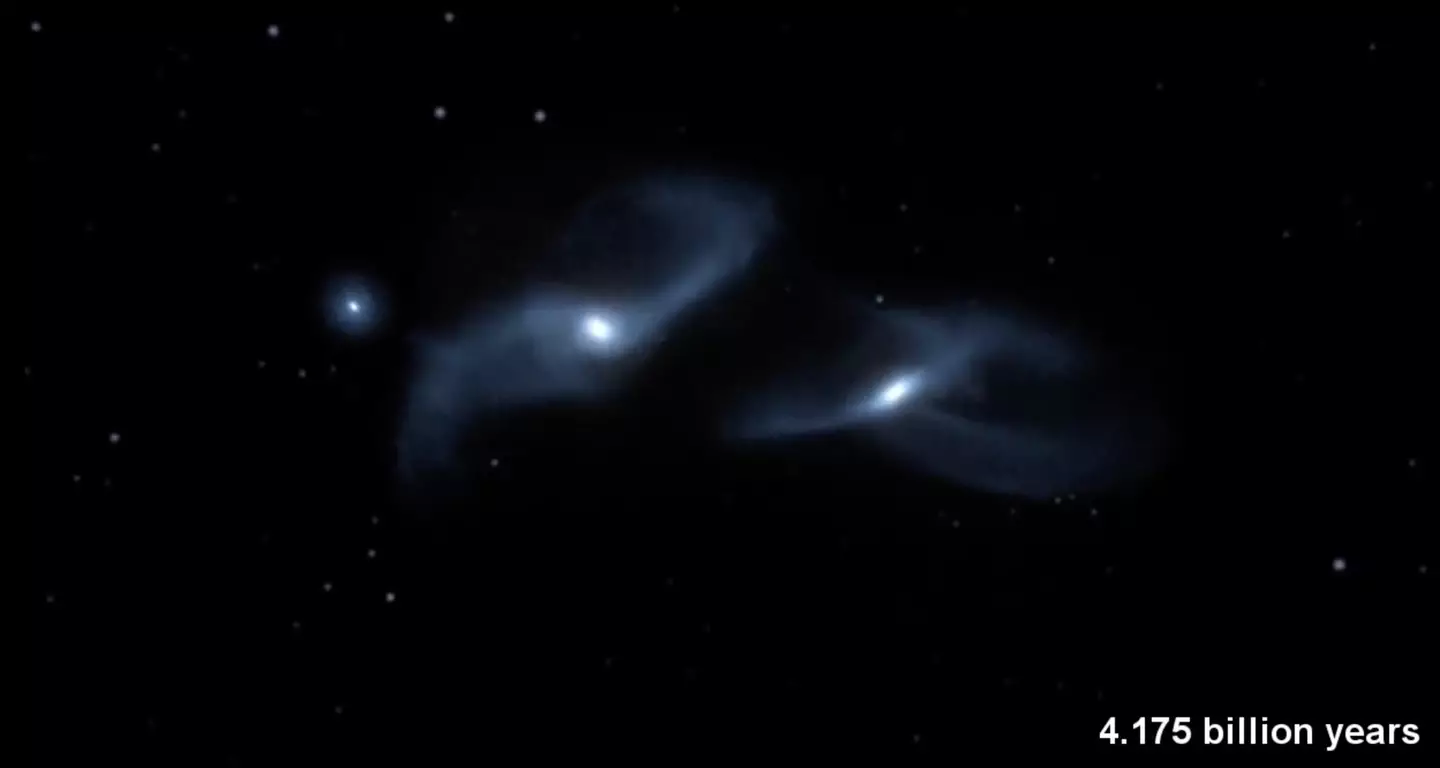
At some point, it is theorised that the Triangulum galaxy, another smaller one out near Andromeda, could get into the mix as well.
So, what does it look like after that?
Well, Gurtina Besla of Columbia University, said: “In the worst-case-scenario simulation, M31 slams into the Milky Way head-on and the stars are all scattered into different orbits.
"The stellar populations of both galaxies are jostled, and the Milky Way loses its flattened pancake shape with most of the stars on nearly circular orbits.
"The galaxies' cores merge, and the stars settle into randomized orbits to create an elliptical-shaped galaxy."
It is – however – unlikely that there’ll be many head-on collisions.
Sure, the sun and Earth – as well as the entire solar system – might be flung away to a different part of space, but the image of actual planets smashing together is doubtful.
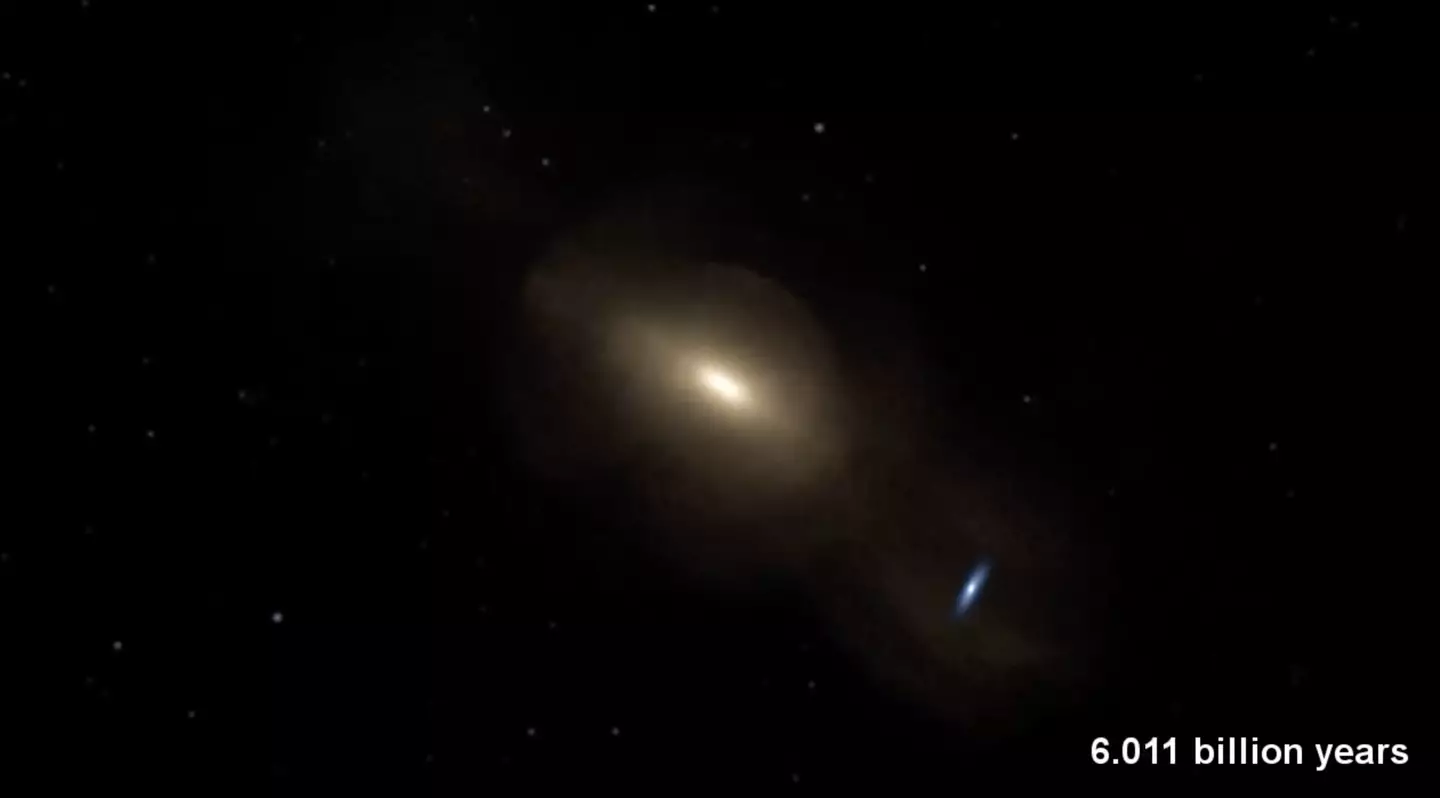
That’s because the sheer distance between planets makes it unlikely, there’s simply too much space out there.
Anyway, if you’re the sort of person that gets overwhelmed with existential dread regarding these sorts of things, just remember that we’re going to have a long wait before any of this actually comes to pass.
We’ve definitely got bigger causes of existential dread to worry about long before then.
Isn’t that a nice thought for a Monday?
Topics: Science, Space, NASA, Weird, World News